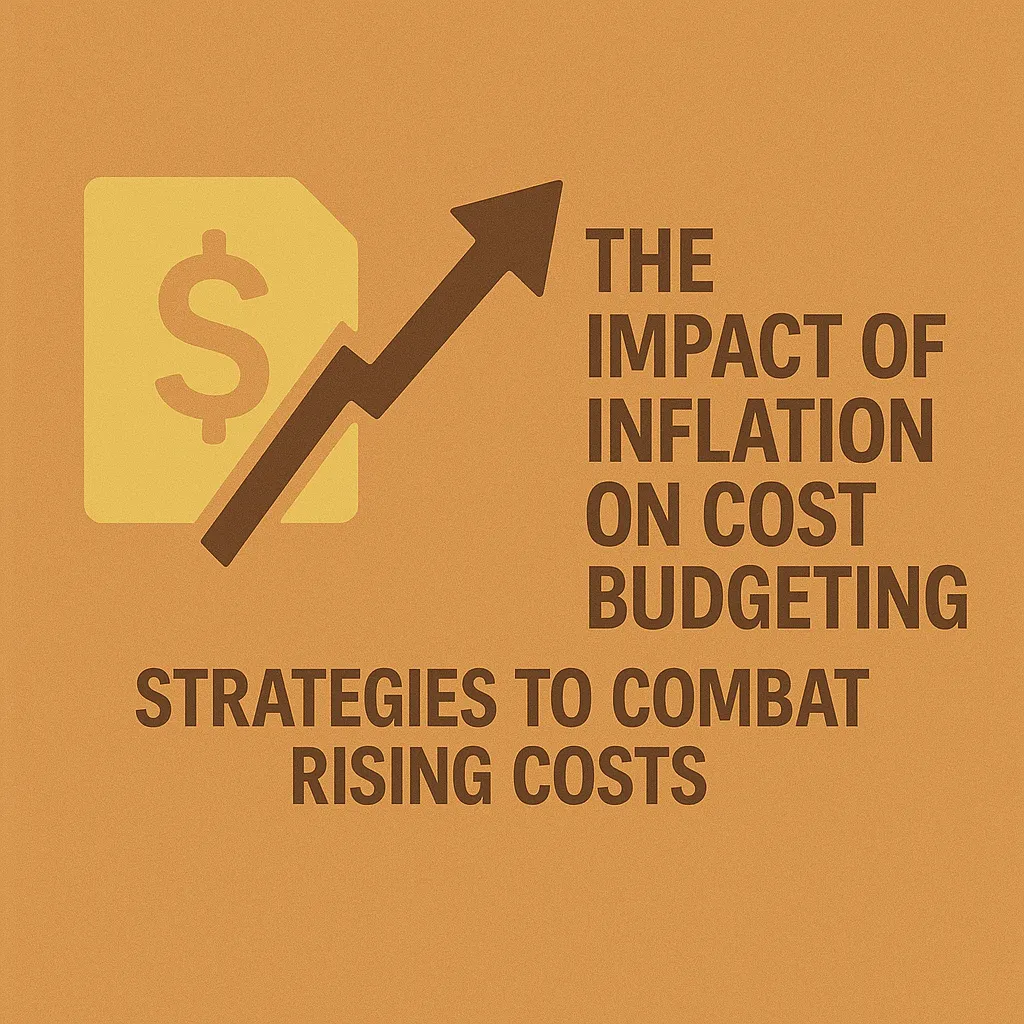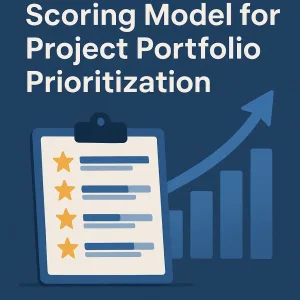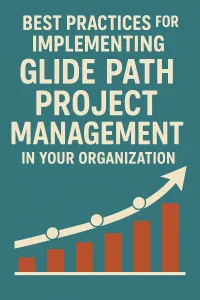Introduction
Cost budgeting is a critical process that involves estimating the financial resources required to complete a project within a specified timeframe. It encompasses the planning, allocation, and control of costs to ensure that a project is delivered on budget. Effective cost budgeting not only helps in tracking expenses but also plays a vital role in decision-making and resource allocation throughout the project lifecycle.
Understanding inflation is essential for project managers and financial analysts as it directly affects the purchasing power of budgets. Inflation can lead to increased costs for materials, labor, and services, which can significantly impact the overall financial health of a project. As prices rise, the initial budget estimates may become outdated, leading to potential shortfalls and financial strain. Therefore, recognizing the implications of inflation on project budgets is crucial for maintaining fiscal responsibility and ensuring project success.
This blog post aims to explore the impact of inflation on cost budgeting in project management. We will discuss how inflation can erode budgetary constraints and present effective strategies to mitigate these risks. By understanding the dynamics of inflation and implementing proactive measures, project managers can better navigate the challenges posed by rising costs, ultimately leading to more successful project outcomes.
Understanding Inflation and Its Effects on Cost Budgeting
Inflation is a critical economic factor that significantly influences cost budgeting in project management. It refers to the general increase in prices and the corresponding decrease in the purchasing power of money over time. Understanding inflation and its implications is essential for project managers and financial analysts to effectively manage budgets and mitigate risks associated with rising costs.
Definition of Inflation and Its Economic Implications
- Inflation Defined: Inflation is the rate at which the general level of prices for goods and services rises, leading to a decrease in the purchasing power of currency. It is typically measured by the Consumer Price Index (CPI) or the Producer Price Index (PPI).
- Economic Implications: High inflation can erode the value of fixed budgets, making it challenging for project managers to maintain financial control. As costs rise, the original budget may become insufficient, leading to potential project delays, scope reductions, or even cancellations.
Effects of Inflation on Project Budgets
- Material Costs: Inflation directly impacts the cost of raw materials. As prices increase, project managers may find that the budget allocated for materials is no longer adequate. For instance, construction materials like steel and lumber have seen significant price fluctuations due to inflationary pressures, which can lead to budget overruns if not accounted for in advance.
- Labor Costs: Rising inflation often leads to increased wage demands from workers seeking to maintain their purchasing power. This can result in higher labor costs, which can significantly affect the overall project budget. Project managers must anticipate these changes and adjust their budgets accordingly to avoid financial shortfalls.
- Overall Project Expenses: Inflation can affect various aspects of project expenses, including overhead costs, transportation, and logistics. As these costs rise, the cumulative effect can lead to substantial budget increases, necessitating careful planning and monitoring.
Statistical Data on Recent Inflation Trends
Recent trends indicate that inflation rates have fluctuated significantly in the past few years, influenced by various factors such as supply chain disruptions, geopolitical tensions, and changes in consumer demand. For example:
- Inflation Rates: According to the latest data, inflation rates have reached levels not seen in decades, with some countries experiencing rates above 7% annually. This has profound implications for project budgeting, as it necessitates a reevaluation of cost estimates and financial forecasts.
- Relevance to Project Management: Understanding these trends is crucial for project managers. For instance, if inflation is projected to rise, it may be prudent to secure contracts for materials and labor sooner rather than later to lock in prices and mitigate the risk of further increases.
The Ripple Effect of Inflation on Project Budgets
Inflation is a persistent economic phenomenon that can significantly impact project management, particularly in the realm of cost budgeting. As prices rise, project managers and financial analysts must navigate a complex landscape of challenges that can affect timelines, budgets, and overall project scope. Understanding these effects is crucial for effective project planning and execution. Here are some key points to consider regarding the impact of inflation on project budgets:
1. Influence on Project Timelines and Schedules
- Extended Timelines: Inflation can lead to increased costs for materials, labor, and services, which may necessitate longer timelines to accommodate budget adjustments. As prices rise, project managers may find themselves needing to source alternative suppliers or negotiate new contracts, which can delay project milestones.
- Resource Availability: Rising costs can also affect the availability of resources. If suppliers increase prices, they may limit the quantity of materials available, leading to potential delays in project execution. This scarcity can force project managers to reassess their schedules and timelines to ensure that they can still meet project goals.
2. Increased Contingency Budgets
- Buffer Against Uncertainty: In an inflationary environment, project managers often need to increase their contingency budgets to account for unforeseen cost escalations. This additional financial cushion is essential to mitigate risks associated with fluctuating prices and ensure that projects remain on track despite economic uncertainties.
- Reevaluation of Risk Management Strategies: As inflation impacts various cost components, project managers should regularly reevaluate their risk management strategies. This includes assessing the adequacy of contingency funds and making adjustments based on current economic forecasts and trends.
3. Adjustments to Project Scope
- Scope Creep: Inflation can lead to scope creep, where project requirements expand due to rising costs. For instance, if certain materials become prohibitively expensive, project managers may need to consider alternative solutions or adjust the project scope to maintain budgetary constraints.
- Prioritization of Deliverables: In response to inflation, project managers may need to prioritize deliverables based on their importance and cost-effectiveness. This may involve scaling back on less critical features or phases of the project to ensure that essential components are completed within budget.
Identifying Risks Associated with Inflation
Inflation can significantly impact project budgets, leading to various risks that project managers and financial analysts must navigate. Understanding these risks is crucial for effective cost budgeting and ensuring project success. Here are some key risks associated with inflation:
- Cost Overruns: One of the most immediate risks posed by inflation is the potential for cost overruns. As prices for materials, labor, and services rise, the original budget may no longer be sufficient to cover the actual expenses incurred during the project. This can lead to financial strain and necessitate additional funding, which may not always be available.
- Budget Shortfalls: Inflation can create budget shortfalls, particularly if the initial estimates did not account for rising costs. This is especially true in long-term projects where inflation rates can fluctuate significantly over time. A budget that seemed adequate at the project’s inception may fall short as costs escalate, leading to difficult decisions about project scope and resource allocation.
- Stakeholder Dissatisfaction: When projects exceed their budgets or timelines due to inflation-related issues, stakeholder dissatisfaction can arise. Investors, clients, and team members may become frustrated if they perceive that the project is mismanaged or if the quality of deliverables is compromised due to budget constraints. This dissatisfaction can damage relationships and impact future project opportunities.
- Impact on Fixed-Price Contracts vs. Cost-Plus Contracts: The type of contract used can influence how inflation affects a project. Fixed-price contracts place the risk of cost increases on the contractor, which may lead to higher initial bids as contractors seek to mitigate their risk. Conversely, cost-plus contracts allow for adjustments based on actual costs, which can provide more flexibility but may lead to less incentive for cost control. Understanding these dynamics is essential for project managers when negotiating contracts and managing expectations.
- Long-Term Implications on Project Viability: Inflation can have long-term implications for project viability and success. Projects that are unable to adapt to rising costs may face delays, reduced quality, or even cancellation. Additionally, inflation can affect the overall economic environment, influencing funding availability and market conditions. Project managers must consider these factors when planning and executing projects to ensure they remain viable in an inflationary landscape.
Strategies to Combat Rising Costs
Inflation can significantly impact project budgets, leading to increased costs and potential project overruns. For project managers and financial analysts, it is crucial to implement effective strategies to mitigate these risks. Here are some actionable strategies to consider:
- Regular Budget Reviews and Updates: Conducting frequent budget reviews allows project managers to stay informed about current economic conditions and their effects on project costs. Regular updates help identify variances early, enabling timely adjustments to the budget. This proactive approach ensures that the project remains on track and can adapt to changing financial circumstances.
- Inflation-Adjusted Pricing in Contracts: Incorporating inflation-adjusted pricing clauses in contracts can protect against rising costs. This approach allows for price adjustments based on inflation indices, ensuring that contractors and suppliers are compensated fairly without compromising the project budget. By negotiating these terms upfront, project managers can safeguard their budgets against unforeseen inflationary pressures.
- Building Flexible Budgets: Developing flexible budgets that can accommodate fluctuating costs is essential in an inflationary environment. This involves creating contingency funds or reserves that can be accessed when costs exceed initial estimates. A flexible budget allows project managers to respond quickly to price changes, ensuring that essential project components remain funded even as costs rise.
- Proactive Communication with Stakeholders: Maintaining open lines of communication with stakeholders regarding potential budget adjustments is vital. By discussing the impact of inflation and the need for budget revisions, project managers can foster understanding and support among stakeholders. This transparency helps manage expectations and can lead to collaborative solutions for addressing budgetary challenges.
Leveraging Technology for Effective Cost Budgeting
The impact of inflation on cost budgeting is a pressing concern that requires innovative solutions. As project managers and financial analysts navigate the complexities of rising costs, leveraging technology becomes essential in maintaining control over budgets. Here are key strategies and tools that can aid in effective cost budgeting amidst inflationary pressures:
1. Budgeting Software with Real-Time Data and Inflation Forecasting
Utilizing advanced budgeting software that integrates real-time data and inflation forecasting can significantly enhance the accuracy of project budgets. These tools allow project managers to:
- Access Up-to-Date Information: Real-time data ensures that project budgets reflect current market conditions, enabling more informed decision-making.
- Forecast Inflation Effects: By incorporating inflation forecasts, these software solutions help project managers anticipate cost increases and adjust budgets proactively, rather than reactively.
- Scenario Planning: Many budgeting tools offer scenario analysis features, allowing managers to simulate various inflation rates and their potential impact on project costs, thus preparing for different financial outcomes.
2. Dynamic Budget Adjustments with Project Management Tools
Project management tools that facilitate dynamic budget adjustments are invaluable in an inflationary environment. These tools provide several benefits:
- Flexibility in Budgeting: With the ability to adjust budgets in real-time, project managers can respond swiftly to unexpected cost increases, ensuring that projects remain on track financially.
- Collaboration Features: Many project management platforms enable team collaboration, allowing stakeholders to discuss budget changes and their implications, fostering a more agile approach to financial management.
- Integration with Other Systems: These tools often integrate with other financial systems, providing a holistic view of project finances and enabling seamless updates to budgets as costs fluctuate.
3. Data Analytics for Identifying Cost Trends
Data analytics plays a crucial role in understanding and mitigating the effects of inflation on project budgets. By harnessing data analytics, project managers can:
- Identify Cost Trends: Analyzing historical data can reveal patterns in cost fluctuations, helping managers predict future expenses and adjust budgets accordingly.
- Informed Decision-Making: Data-driven insights allow project managers to make informed decisions about resource allocation, procurement strategies, and risk management, ultimately leading to more resilient budgets.
- Benchmarking: Utilizing analytics tools can help project managers benchmark their costs against industry standards, providing context for budget adjustments and identifying areas for potential savings.
Conclusion
The impact of inflation on cost budgeting cannot be overstated. As inflation rates fluctuate, they directly affect the costs of materials, labor, and overall project expenses. This volatility can lead to budget overruns and financial strain, making it essential for project managers to understand and anticipate these changes.
To effectively combat rising costs, it is crucial to implement proactive strategies. This includes utilizing advanced budgeting tools and technologies that allow for real-time tracking of expenses and adjustments based on current economic conditions. By leveraging data analytics and forecasting models, project managers can create more accurate budgets that account for potential inflationary pressures.
Moreover, it is vital for project managers to adopt a mindset of continuous assessment and adaptation. Regularly reviewing and adjusting budgeting practices in response to economic indicators will enhance resilience against inflation. This proactive approach not only safeguards project viability but also ensures that financial analysts can provide informed insights to stakeholders.
In summary, recognizing the effects of inflation on project budgets and employing strategic measures to mitigate risks is essential for successful project management. By staying vigilant and adaptable, project managers can navigate the challenges posed by inflation, ultimately leading to more successful project outcomes.
Find out more about Shaun Stoltz https://www.shaunstoltz.com/about/.
This post was written by an AI and reviewed/edited by a human.



